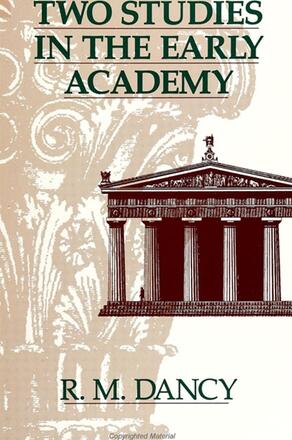
Two Studies in the Early Academy
Alternative formats available from:
Description
This book presents two new interpretations of the evidence regarding the metaphysical ideas of two important figures in Plato's Academy, Eudoxus and Speusippus, and of Aristotle's reaction to those ideas. The central question has to do with Plato's "Theory of Forms. "
The first interpretation portrays Eudoxus reviving a view of Anaxagoras' and advocating that the Forms are physical ingredients in things. This has affinities with Aristotle's own view, so it is interesting that Aristotle argues for its rejection. The essay extracts Aristotle's arguments from material in late sources and examines them in depth.
The second interpretation discusses Speusippus' replacement of the Theory of Forms with a theory that derives all that there is from the One, which does not itself exist. His argument for this strange position is reconstructed, and the relations between the theory of causality, to which it is opposed, are laid out.
The Academy was not a source of dogma, but of discussion. In reconstructing central aspects of that discussion, these interpretations seek to get behind mere reportage of what little is known to the actual arguments current in the halls of the Academy.
R. M. Dancy is Professor of Philosophy at Florida State University.
Reviews
"The book deals with topics at the forefront of research in ancient philosophy. Most comparable research until recently focused almost entirely on the two best-known members of the early Academy, Plato and Aristotle. By turning to two less well-known figures, Speusippus and Eudoxus, Dancy both opens up new areas of research and sheds new light on old ones. " — Ian Mueller, University of Chicago
"What I find most commendable about this work is its fresh, crisp, lucid language. The freshness and deftness with which Dancy handles his materials make this an extraordinarily attractive book. A second in my list of things to admire in this work is the rich documentation of source material in the notes. This and the inclusion of translations of texts cited will make this book a treasure trove for scholars. " — Josiah B. Gould, State University of New York at Albany